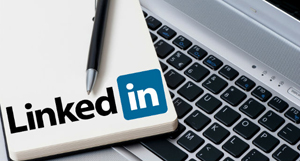 Countless times, I’ve heard clients say to me “It’s just a phone interview.” Just a phone interview! Like it’s no big deal. Well it is a big deal, because if you don’t make it through what’s also known as the phone screen, you don’t get the face to face interview, which means you also don’t get the job.
Countless times, I’ve heard clients say to me “It’s just a phone interview.” Just a phone interview! Like it’s no big deal. Well it is a big deal, because if you don’t make it through what’s also known as the phone screen, you don’t get the face to face interview, which means you also don’t get the job.
The phone screen has become a rite of passage for someone making a career transition. Before a recruiter decides to advance your resume to his or her client, before an HR professional sends you to the hiring manager, before a hiring manager takes the time to meet with you in person, there has to be a phone interview.
In today’s competitive market, the phone screen is necessary to whittle down the pool of candidates. Without some sort of screening mechanism, no work would be done, there would just be interviewing. That means the phone screen is not to be taken lightly.
A common mistake made by job seekers is not taking the phone interview seriously enough. How do you prep for a phone interview? The same way you would get ready for a face to face encounter. Research the company, prepare to answer questions about your background complete with anecdotes, and have questions ready for the interviewer.
The disadvantage of a phone interview is you don’t have the visual cues like body language to see how your answers are going over. But there are some benefits. You can have notes in front of you that highlight your successes and why you’re a perfect fit for the position. In addition you can have your own questions written out so you don’t forget to cover everything.
Another thing you can do on a phone interview that you can’t do in person, without looking mildly insane, is to smile and stand up while you’re speaking. Smiling and standing dramatically improve your delivery. Smiling adds a positive energy to your voice while standing adds more power. They’re two simple tricks, but if you’re doing them and your competition isn’t you’ll be the stand out candidate.
~Linda


